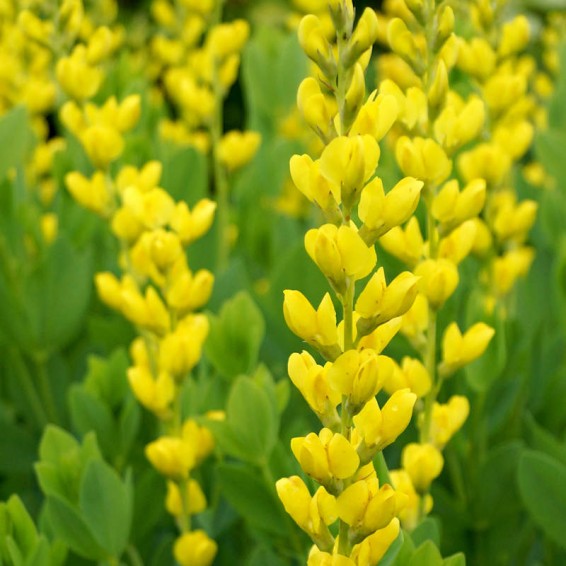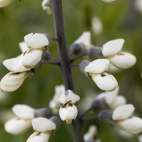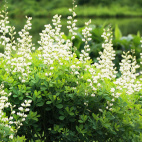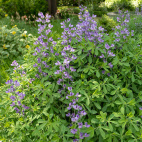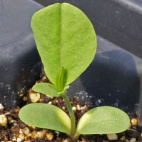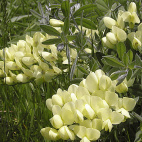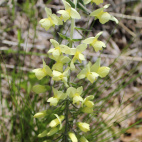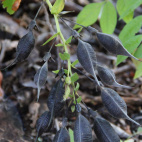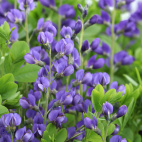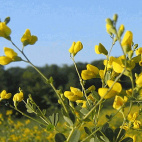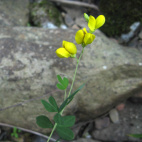Large Yellow Wild Indigo Seeds
- HOW TO GROW
- FAST FACTS
- REVIEWS
HOW TO GROW
Sowing: Since this plant does not transplant well, large yellow wild indigo flower seeds should be direct sown. The seed will need to be scarified; to accomplish this, pour 150 degrees F water over the seed and let it soak overnight the day before planting. In late fall, plant the seeds 1/2" deep. For spring planting, the scarified seed will need to be mixed with moist sand and stored in the refrigerator for 10 days before planting. Germination should take place within 15-20 days.
Growing: This plant tolerates clay, gravel, and sand and can also thrive in poor soil. It tolerates drought well, but it also benefits from occasional watering. Though long-lived, the plants develop slowly and may not flower until their second or third season. The foliage may be pruned for neat growth after blooming, though this will prevent the development of the seed pods. The yellow wild indigo plant will go dormant over winter, and can be cut down to 6" after the foliage dies. Eventually, the plants will spread by rhizomes. White Wild Indigo is a host plant for the Indigo Dusky Wing and Zarucco Dusky Wing butterflies, though the foliage can be fatal to grazing animals.
Harvesting: The foliage and seed pods of this flower both dry well and make attractive additions to dried flower arrangements.
Seed Saving: When ripe, the seed pods will turn black; cut them off and spread them out to dry away from direct sunlight. Split the pods open to remove the seed. Store large yellow wild indigo flower seeds in a cool, dry place.
FAST FACTS
Common Names: Yellow Baptisia, False Yellow Indigo, Yellow Wild Indigo, Bush Pea, Green Wild Indigo, Yellow Wisteria
Latin Name: Baptisia sphaerocarpa
Species Origin: US Native Wildflower
Type: Native Wildflowers
Life Cycle: Perennial
USDA Zones: 5, 6, 7, 8, 9
US Regions: Plains/Texas, Midwest, Southeast
Seeds per Ounce: 1,900
Stratification: Cold/Wet for 1 Week
Germination Ease: Stratify 1 Week
Sunlight: Full Sun
Height: 36 Inches
Color: Yellow
Bloom Season: Blooms Early Summer
Uses: Attracts Pollinators, Attracts Honeybees, Attracts Butterflies, Cut Flowers, Deer Resistant
yellow
nice and bright. haven"t planted yet.
never received product
I'd love to actually have s review but I've never received the seeds, twice. They said they're on the way. I even ordered them from Amazon, which comes from Evereilde. Never received those either. Frustrating!
We are sorry that your order was lost in the mail the second time! Please contact customer service, verify your address and we will reship or refund your order.
indigo
I saw this on one of my gardening sites and had to get me some seeds to try it.Now I am wondering can I try it now or is it too late this year?I am in 8a zone.I love the way you all ship out so quickly and your packaging is awesome.I have ordered twice with quick action from your end both times.
These should either be planted in the fall so they can naturally go through the cold winter cycle or they should be planted in the spring after having been stratified.
Baptisia seeds
When one of my regular suppliers canceled Baptisia from my order, I did a Google search for another supplier. After looking at a few I selected Everwilde because they had a few other types that I wanted to try. The ordering process and shipping were both seamless and prompt. If the seeds perform as expected, Everwilde will become a regular source for my cut flower operation.
DESCRIPTION
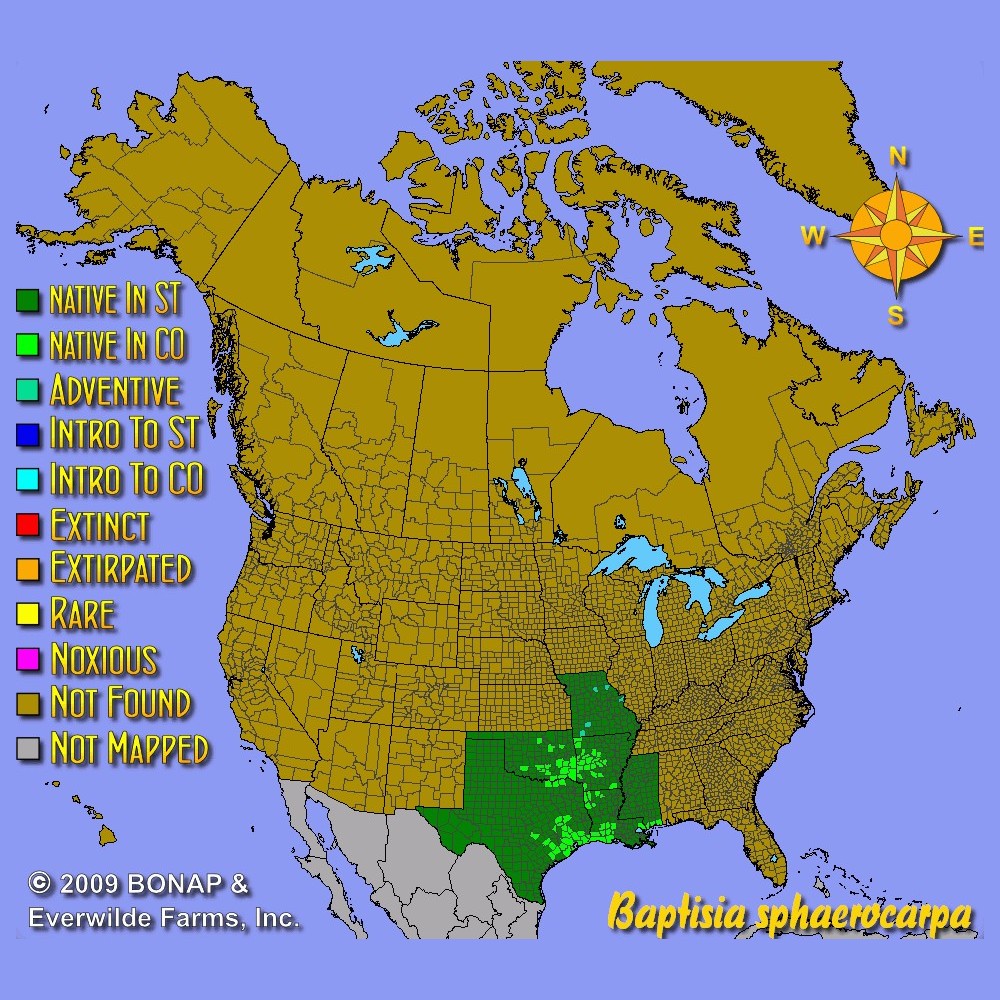
HOW TO GROW
Sowing: Since this plant does not transplant well, large yellow wild indigo flower seeds should be direct sown. The seed will need to be scarified; to accomplish this, pour 150 degrees F water over the seed and let it soak overnight the day before planting. In late fall, plant the seeds 1/2" deep. For spring planting, the scarified seed will need to be mixed with moist sand and stored in the refrigerator for 10 days before planting. Germination should take place within 15-20 days.
Growing: This plant tolerates clay, gravel, and sand and can also thrive in poor soil. It tolerates drought well, but it also benefits from occasional watering. Though long-lived, the plants develop slowly and may not flower until their second or third season. The foliage may be pruned for neat growth after blooming, though this will prevent the development of the seed pods. The yellow wild indigo plant will go dormant over winter, and can be cut down to 6" after the foliage dies. Eventually, the plants will spread by rhizomes. White Wild Indigo is a host plant for the Indigo Dusky Wing and Zarucco Dusky Wing butterflies, though the foliage can be fatal to grazing animals.
Harvesting: The foliage and seed pods of this flower both dry well and make attractive additions to dried flower arrangements.
Seed Saving: When ripe, the seed pods will turn black; cut them off and spread them out to dry away from direct sunlight. Split the pods open to remove the seed. Store large yellow wild indigo flower seeds in a cool, dry place.
FAST FACTS
Common Names: Yellow Baptisia, False Yellow Indigo, Yellow Wild Indigo, Bush Pea, Green Wild Indigo, Yellow Wisteria
Latin Name: Baptisia sphaerocarpa
Species Origin: US Native Wildflower
Type: Native Wildflowers
Life Cycle: Perennial
USDA Zones: 5, 6, 7, 8, 9
US Regions: Plains/Texas, Midwest, Southeast
Seeds per Ounce: 1,900
Stratification: Cold/Wet for 1 Week
Germination Ease: Stratify 1 Week
Sunlight: Full Sun
Height: 36 Inches
Color: Yellow
Bloom Season: Blooms Early Summer
Uses: Attracts Pollinators, Attracts Honeybees, Attracts Butterflies, Cut Flowers, Deer Resistant
Reviews
Review
yellow
nice and bright. haven"t planted yet.
Review
never received product
I'd love to actually have s review but I've never received the seeds, twice. They said they're on the way. I even ordered them from Amazon, which comes from Evereilde. Never received those either. Frustrating!
We are sorry that your order was lost in the mail the second time! Please contact customer service, verify your address and we will reship or refund your order.
Review
indigo
I saw this on one of my gardening sites and had to get me some seeds to try it.Now I am wondering can I try it now or is it too late this year?I am in 8a zone.I love the way you all ship out so quickly and your packaging is awesome.I have ordered twice with quick action from your end both times.
These should either be planted in the fall so they can naturally go through the cold winter cycle or they should be planted in the spring after having been stratified.
Review
Baptisia seeds
When one of my regular suppliers canceled Baptisia from my order, I did a Google search for another supplier. After looking at a few I selected Everwilde because they had a few other types that I wanted to try. The ordering process and shipping were both seamless and prompt. If the seeds perform as expected, Everwilde will become a regular source for my cut flower operation.
Also Consider These:
-
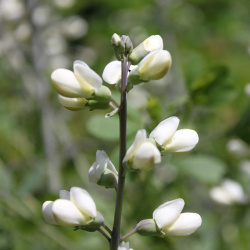 White Wild Indigo Seeds
Baptisia alba
Attractive foliage and vase-like shape add a refined touch to the native landscape. The lovely white blooms are very drought resistant and will bring pollinators to your garden.Quick View$3.75 Pkt - $18.26 / Oz
White Wild Indigo Seeds
Baptisia alba
Attractive foliage and vase-like shape add a refined touch to the native landscape. The lovely white blooms are very drought resistant and will bring pollinators to your garden.Quick View$3.75 Pkt - $18.26 / Oz -
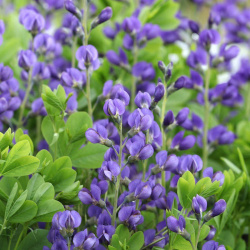 On Sale!
Blue Wild Indigo Seeds
Baptisia australis
Though slow to establish, these brilliant blue and purple blossoms are worth the wait. The bushy perennial can persist for decades and is a source for indigo dye.Quick View$3.48 Pkt - $15.95 / Oz
On Sale!
Blue Wild Indigo Seeds
Baptisia australis
Though slow to establish, these brilliant blue and purple blossoms are worth the wait. The bushy perennial can persist for decades and is a source for indigo dye.Quick View$3.48 Pkt - $15.95 / Oz -
 Cream Wild Indigo Seeds
Baptisia leucophaea
One of the first plants to bloom on the spring prairie, these abundant creamy flowers add elegance to any planting. These take a while to establish from seed but will persist for decades.Quick View$3.75 Pkt - $108.00 / Oz
Cream Wild Indigo Seeds
Baptisia leucophaea
One of the first plants to bloom on the spring prairie, these abundant creamy flowers add elegance to any planting. These take a while to establish from seed but will persist for decades.Quick View$3.75 Pkt - $108.00 / Oz -
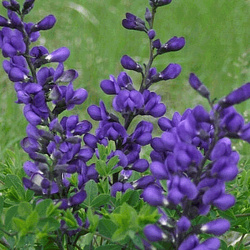 Dwarf Blue Indigo Seeds
Baptisia minor
Deep blue flowers provide a striking contrast to a native planting or garden. The shrub-like plants also have a very lovely green foliage.Quick View$3.48 Pkt - $22.17 / Oz
Dwarf Blue Indigo Seeds
Baptisia minor
Deep blue flowers provide a striking contrast to a native planting or garden. The shrub-like plants also have a very lovely green foliage.Quick View$3.48 Pkt - $22.17 / Oz -
 Small Yellow Wild Indigo Seeds
Baptisia tinctoria
These sunny, yellow flowers grow on drought-resistant, shrub-like plants. These long-lived perennials are perfect for native landscaping.Quick View$3.75 Pkt - $60.00 / Oz
Small Yellow Wild Indigo Seeds
Baptisia tinctoria
These sunny, yellow flowers grow on drought-resistant, shrub-like plants. These long-lived perennials are perfect for native landscaping.Quick View$3.75 Pkt - $60.00 / Oz




